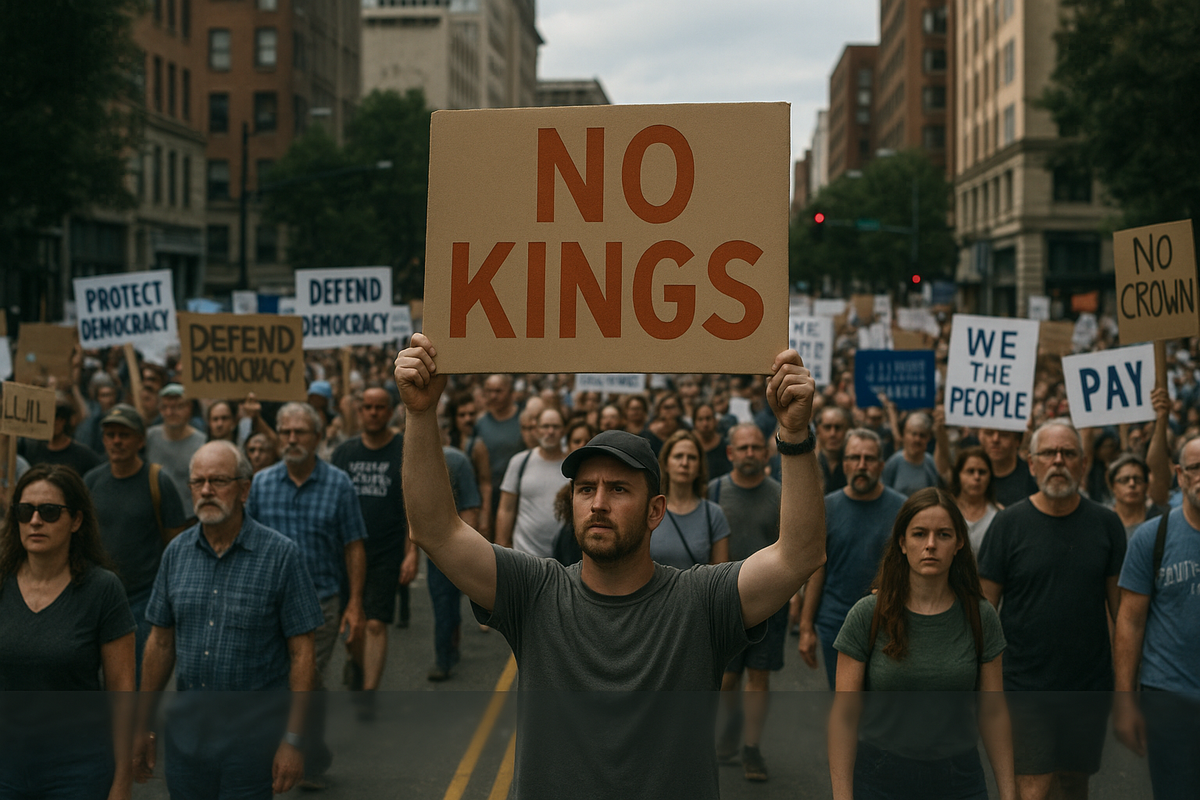No Kings: A Nation Speaks
In all 50 states, in U.S. territories, and even abroad, the **No Kings** movement organized what may be the largest single-day protest in American history. Backed by more than 200 organizations.

Last Saturday, as President Trump celebrated his 79th birthday with a military parade in Washington, D.C.—funded by private donors at a reported cost of $25–45 million—something far larger and more democratic was unfolding across the country.
In all 50 states, in U.S. territories, and even abroad, the No Kings movement organized what may be the largest single-day protest in American history. Backed by more than 200 organizations—including Indivisible, the 50501 Movement, ACLU, MoveOn, Working Families Party, and the American Federation of Teachers—the protest united an estimated 4 to 6 million people across more than 2,100 locations.
At its core, the message was clear: we are not subjects. The presidency is not a throne. The United States has no king.
A Day of Civic Action
From Los Angeles to New York, Kansas City to Seattle, crowds gathered in the streets to reject authoritarianism and reclaim the democratic promise of a government accountable to its people. In Kansas City, I witnessed roughly 2,000 people gather at the Country Club Plaza. The mood was peaceful but firm, with handmade signs, chants, music, and speeches from local voices echoing a collective concern: that democratic norms are eroding under the weight of power consolidated at the top.
While some of the largest turnouts were in urban centers—200,000 in Los Angeles, 100,000 in Philadelphia, 70,000 in Seattle—what stood out just as much were the small-town actions. In rural counties and mid-sized cities, neighbors met in parks, along courthouse steps, or outside city halls to make their voices heard. This was not a media-driven spectacle; it was a grassroots act of refusal, organized by everyday people across the political spectrum who still believe that democracy is worth showing up for.
Isolated Violence, Ongoing Risk
Despite the overall tone of peaceful civic engagement, a handful of serious incidents served as sobering reminders of the risks that come with public protest. The most tragic occurred in Salt Lake City, where a confrontation involving an armed counterprotester led to the death of Arthur Folasa Ah Loo—a 39-year-old fashion designer and Project Runway contestant. Police are still investigating, but the sequence involved a peacekeeper returning fire after being threatened, unintentionally striking Ah Loo.
Other incidents included a vehicular threat in Virginia, a handgun brandished in Nashville, an evacuation at the Texas Capitol, and a politically motivated killing in Minnesota that led to the cancellation of events there. While these episodes were not representative of the movement as a whole, they cast a long shadow. They remind us that in an environment where violence is increasingly normalized, even peaceful demonstrations carry risk.
A Clear Message, a Long Road
The No Kings events did more than send a message to those in power—they sent a message to each other. Millions of Americans stood up on the same day, in different places, to say: “This matters. We’re still here. We’re still paying attention.”
It was not chaos. It was not violence. It was democracy—loud, messy, imperfect, and still alive.
For all the noise surrounding the parade in D.C., history may well remember June 14, 2025, not for its tanks and spectacle, but for the quiet force of collective conscience rising in the streets.
Because when the people remember they are sovereign, kings don’t last.
